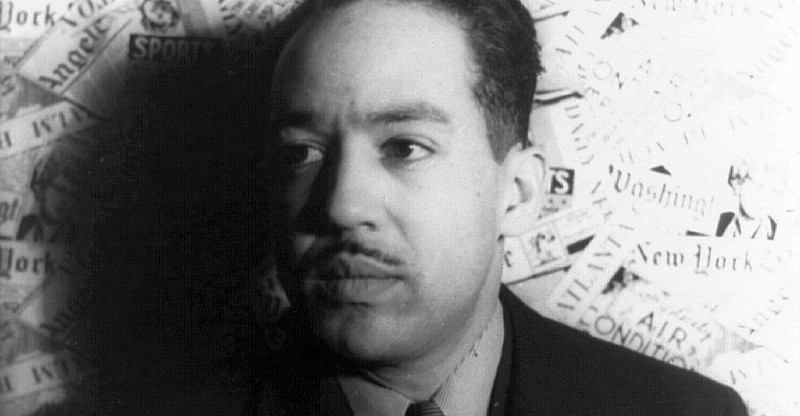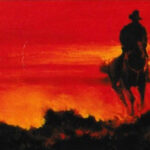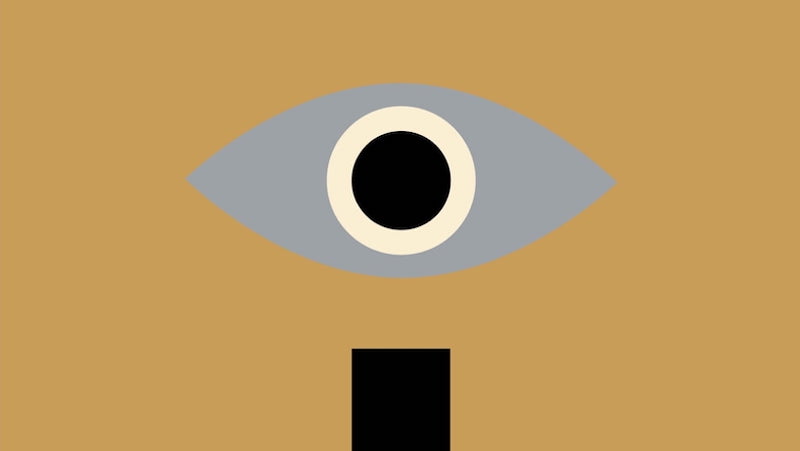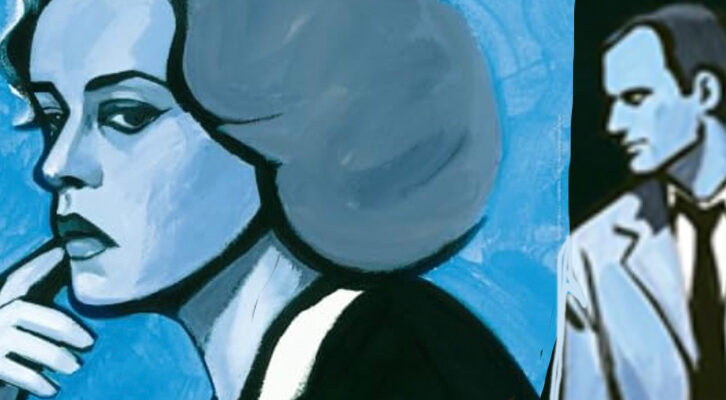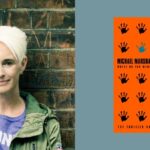On The Many Hauntings of Langston Hughes
Nick Ripatrazone Considers the Poet's Close Encounters With the Supernatural
“Have you ever seen a ghost? If so,” Langston Hughes requested, “please let me know.”
The June 16, 1951 edition of the poet’s regular column for The Chicago Defender was an ardent call for the paranormal. “I don’t know why the supernatural has never come my way,” Hughes lamented. “I don’t say that I don’t believe in ghosts,” he clarified. “I just say that I have never seen one.”
For nearly a decade, Hughes had been writing columns for the influential Black newspaper. These short articles have been rightly lauded as a proving ground for Hughes’s craft—and a spirited defense of his ideals. “Things that happen away off yonder affect us here,” Hughes wrote in his first column, on November 21, 1942. “The bombs that fall on some far-off Second Front in Asia rattle the dishes on your table in Chicago or New Orleans, cut down on your sugar, coffee, meat ration, and take the tires off your car.”
“Some will die way over yonder in Europe, in Asia, and Africa—thus forcefully and directly does the yonder reach into the here,” Hughes affirmed. “It touches you. It touches me.”
The Chicago Defender columns were also an opportunity for Hughes to cultivate a less known, curious interest: ghosts.Hughes wrote of how “Klansmen and Storm Troopers are brothers under the skin.” He penned an open letter to “White Shopkeepers Who Own Stores in Negro Neighborhoods” during the Harlem riot of 1943: “The community which you serve is 99 per cent colored. That community remembers when you would not, if you could help it, employ a single Negro clerk.”
He often adopted the persona of Jesse B. Semple, nicknamed “Simple” or “Simple Minded Friend.” The character was a “composite” largely based on a man Hughes met at Patsy’s Bar in Harlem. Simple’s banter is by turns comic and contemplative, and captured the cadence of that original conversation. When the man told Hughes that he made “cranks” in a war plant, Hughes asked for more detail: “What do they crank?” The man responded: “I don’t know. I don’t crank with them cranks. I just make ‘em. They don’t tell colored folks what cranks crank.”
Yet the Chicago Defender columns were also an opportunity for Hughes to cultivate a less known, curious interest: ghosts. In addition to his Simple persona, Hughes created “Old Ghost,” who lived as John Wendell Greene—a “field worker for the Celestial Commission on Civil Rights” and a Howard graduate. (“Harvard?” asked a wealthy white woman to whom he once appeared. “No, Howard,” Old Ghost replied. “And while I am here, I advise you to give to the United Negro College Fund.”).
Hughes was fond of Old Ghost; he wrote in a 1949 letter that the character “can go anywhere and haunt anybody.” He also offered Hughes a tragicomic vehicle. When someone asks Old Ghost why “Negroes seem so interested in wills,” he responds: “They expect so little from this life, but they hope for better things after death.”
Old Ghost appeared—dressed “in full Klan regalia”—in front of the Grand Dragon, Dr. Samuel Green. He swam in a municipal pool, “sending a spout of water up from his mouth like a walrus,” and announced that the pool would now be open to all, “regardless of race.” He showed up “unannounced, also unsummoned” in front of the House Un-American Activities Committee, “tall and dark as Paul Robeson, and twice as cocky.”
Hughes often pivoted his Old Ghost persona from comedy to catharsis. When Old Ghost spoke with the president, he said that he had been lynched, and that “sometimes I am several Negroes at once.” He recalls his earthly death: “They stuffed a rag in my mouth the night they beat me, choked me, hung me, shot me, and burned me. I could not yell.” Old Ghost adds: “But when I yell now, it echoes in human ears for a long time.”
In 1951, though, Hughes called for readers to write of their own ghostly experiences. Hughes’s interest in soliciting letters from readers was consistent with an ethos voiced in his first column. “I know lots of folks whose names have never been in the newspapers—as interesting as those whose names have been in the papers.” Hughes promised: “I shall write about them, also.” He promised to publish the “most interesting ghost-story letters,” and send “an autographed copy of one of my books with gratitude.”
Readers responded, sending letters to Hughes’s attention at the Chicago Defender office at 3435 Indiana Avenue. N. Miller, a reader from New York, said he is often visited by a ghost—a woman who had been murdered in his apartment. “She is usually dressed in a transparent, flowing gown,” he said, “and floats through the house moaning softly.” Hughes sent him a signed copy of Montage of a Dream Deferred.
He was surprised to learn that most letters came from others in cities rather than “lonesome country places.” A local reader who wished to remain anonymous wrote of a deserted mansion near Sheridan Road that was scheduled for demolition, but a ghost “ran them away.” Lena Graves from Brooklyn said her family had renovated their cellar, wallpapering it top to bottom—“even where electrical outlets had been installed.” Her Uncle Lew warned them of the fire hazard, but died soon afterward. They could “hear his steps” and, remembering his warnings, cut the wallpaper from the outlets.
It is not clear whether a ghost ever visited Langston Hughes, but he was certainly haunted.Hughes would devote nearly each column of the summer of 1951 to ghosts. He shared the story of Thomas W. Allmond, an Atlantic City bellman who recalls a lonely night at work in 1912. Strange noises came from the cafe. A gas light kept on extinguishing. The door to the children’s dining room opened by itself—there were no guests in the hotel that night—and continued to open again and again, although Allmond had “locked it with a key.” Later that night, the bellman saw a ghost: “young, blonde, dressed in a beautiful gown slightly low at the neck, and she wore a string of pearls.” He walked toward her, but she disappeared. He quit the next morning.
“A newspaper column is really a kind of impersonal letter to the world, addressed to thousands of unknown readers,” Hughes wrote later that year. “But when a reader takes the time and trouble to sit down and pen an individual reply, something personal evolves.” Halloween had come and gone, but in late December, Hughes was still receiving ghost stories. A reader from the south said the ghost of her father appeared to warn her not to marry her boyfriend. She listened, and remained thankful for his advice.
Hughes ended his ghost columns, but a decade later in 1961, his persona Simple wondered about his own afterlife. “But just in case I am a ghost,” he told Hughes, “I would like to have a juke box somewhere near to bring me back to earth. The music of the wind in the trees would not be enough for me.” He wanted some Ray Charles: “music with a beat.” Simple promised there would be “no color line below the ground, the ghosts of white folks and colored folks would all be in the Madison line having a ball.”
The ghost’s motto: “FOR FUN WHEN LIFE IS DONE, SEE ME, JESSE B.”
In May 1964, Hughes drafted a poem with an evolving title: “Ghosts” ultimately became “Ghosts of 1619.” Along the way, Hughes add and then later removed an additional word: “Jamestown.”
“Ghosts of all too solid flesh,” he wrote, “Dark ghosts come back to haunt you now.” The poem suggests that ghosts “may not only haunt you.” These ghosts might become “flesh-and-blood men” for they “got tired of asking, when?” “Although in the minority,” Hughes considered, they “suddenly became majority.”
It is not clear whether a ghost ever visited Langston Hughes, but he was certainly haunted. Perhaps we all are.

